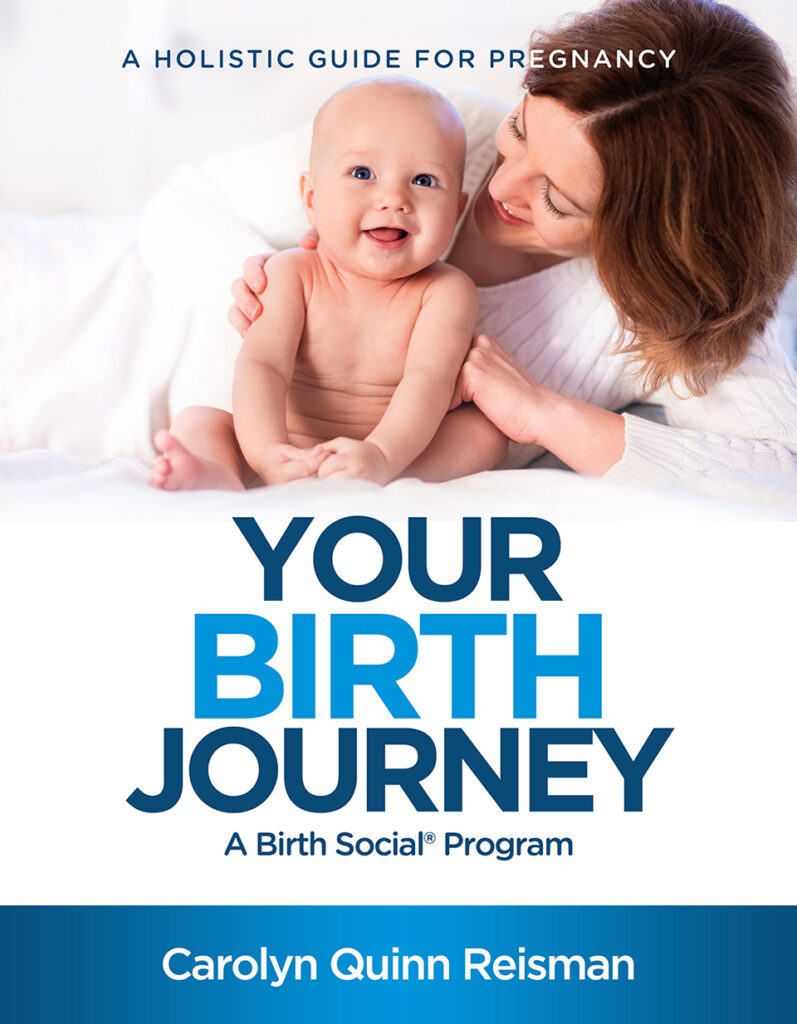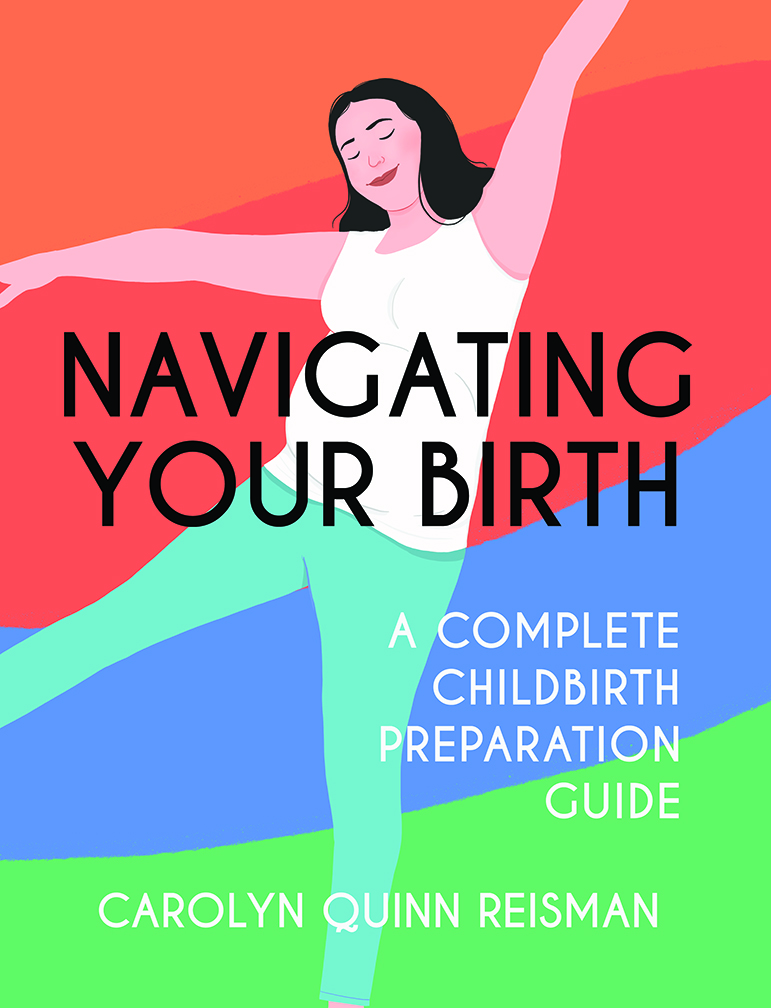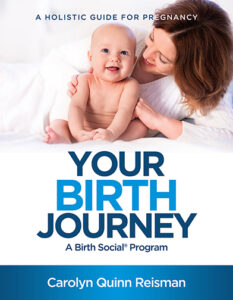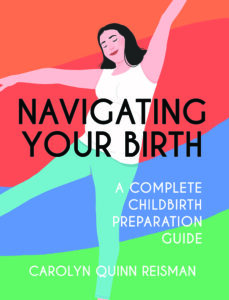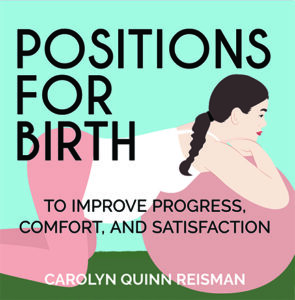Planning for emotional and physical support during pregnancy and an out-of-hospital birth is exciting for families, and many parents ask who they can have at the birth. This is not an easy question for midwives to answer because it is a rhetorical question. Nevertheless, having a loved one or doula by your side can be essential for some mother’s emotional well-being.
Four Questions to Ask Yourself
1. Will I feel comfortable around this person?
Birth is an intimate, messy, primal physiological process that involves moaning, crying out, and at some point, being naked. During the labor process, it is not uncommon to throw up, make trips to the bathroom with the door wide open, have someone wipe your sweaty brow, or clean up the spill of amniotic fluid that just splashed on the floor. There is a high possibility of bloody show running down your leg, of pooping during the birth process, and baring your bottom for the whole world to see. During this time, you may have someone holding your leg, holding your hand, or sitting behind you for support while the midwife and, if possible, the partner sits intently in front of your wide-open legs watching the birth of your baby.
Ask yourself if you would feel comfortable, in this situation, around the potential people you are considering for your birth team.
Birth is an intimate, messy, primal physiological process that involves moaning, crying out, and at some point, being naked.
2. What kind of knowledge or experience does this person have?
Knowledge and experience has many important aspects when it comes to labor and birth. Typically, the more people know, the less afraid they will be. That doesn’t mean you shouldn’t invite your sister or best friend who has never seen a birth. It means taking account of their knowledge.
Most people in the United States have never attended an unmedicated birth, or for that matter, a birth at all. In fact, nurses and physicians in most parts of the United States rarely attend unmedicated births. I am always amazed when nurses tell me how rare it was to see a woman give birth vaginally without pain medication. Epidural rates are nationally at about 73 percent, regardless of risks associated with an epidural.
The majority of births that friends and family witness in the hospital are medicated. During these births, the mom’s epidural enables her to laugh, talk, and be friendly with her family and friends while she labors. When it is time for mom to push, her medical team urges her on with ten-second pushing counts, “1, 2, 3, 4, 5, 6, 7, 8, 9, and push.” It is all very exciting, and when the baby is born, the room is filled with emotional awe. People have learned to be comfortable with being spectators at birth.
People’s knowledge and experience from seeing or hearing about birth are what they bring to YOUR birth.
So, where does that leave your friend or family member who has no knowledge about natural birth or who have only experienced medicated birth? Education is always a stepping stone in the right direction. You, the birthing mother, are learning everything you can about normal, physiological birth. The people you invite should be on your list early in pregnancy so that they, too, have the opportunity to learn the skills and knowledge to help you.
This is not a one-size-fits-all description of all people. Some people may feel naturally at ease around the physiological process of life without ever lifting a book or having a baby. That ‘first’ birth that a young woman sees might inspire her to learn more about the childbirth process. She just knows that everything is right.
3. Will they make me feel afraid?
My experience with fear of birth stretches across decades of midwifery practice. I have often seen siblings, parents, and friends become afraid during labor and birth. The feelings are occasionally a fleeting fear from a spike of adrenaline that momentarily shows up and leaves. Sometimes, fear is pervasive.
There are many unknowns during labor, and so there are many unanswered questions that can nag at someone’s mind and heart, such as “Is she okay? How much longer is it going to take? Is this normal?” Questions do not do create tension all by themselves. Accompanying these questions are the stances and moods that speak volumes, such as arm crossing, frowning, whispering in the corner, looking worried. The stress hormones start flying.
At birth, emotional energy is of utmost importance to a laboring mother, and it needs to be positive. Emotions are directly linked to our hormones. A pounding heart, sweaty palms, or fear in a birth participant’s body isn’t just emotions; it is the stress.
The interaction of hormones and the presence of mind to remain calm will directly affect the laboring mother’s feelings of confidence and relaxation. The laboring mother needs to be surrounded by people who evoke feelings of calmness and security. Sarah Buckley sums it up perfectly in her article, Ecstatic Birth -The Hormonal Blueprint of Labor.
The production of hormones that help you relax can be interrupted by several factors: intervention, nervous tension of friends, an unsupportive birth team, overstimulation, and other factors.
4. How can this person help me at the birth?
Once the first three questions are answered, narrowing down your birth team is simple. If they are comfortable with you being naked, are knowledgeable or willing to become educated, and aren’t utterly afraid of birth, they may be very effective at being an intimate part of the birth team. However, you don’t want your intimate birth team to be spectators!
People you ask to be on your birth team should be willing to help. This means getting food and drinks for mom, getting cold, wet washcloths for her forehead, rubbing her feet or hips, helping mom into different positions, providing encouragement, and more – for the entire labor and birth! Some people need more direction than others, and some are willing to charge right in.
Whenever a mother’s support team showed up at a birth, I noticed they were sometimes at a loss of how to help. The books they read or the videos they watched don’t always translate to knowing what to do. So, I gave them jobs. A doula can also manage this. A doula is a knowledgeable and experienced birth attendant who focuses on the mother’s physical and emotional needs. They are very attuned to helping the birth team be involved.
There are many roles that people can play at your birth. If you have chosen an intimate birth team, but feel that you want other friends or family’s support in other ways – check out Helping Hands at Your Home or Birth Center Birth. There are several ways to help out, such as watching the kids, cooking meals, taking care of the laundry, or picking up items from local stores. People love to help and giving them jobs is an essential part of birth team planning.
People love to help and giving them jobs is an essential part of birth team planning.
Four Question to Ask your Potential Birth Team
- Be honest with yourself and those who you discuss your plans with. Let them know that this is a very intimate experience. Ask them if they would feel comfortable with you being naked, moaning, or crying out.
- Talk to them about the importance of birth education. If they have no knowledge or experience with natural birth, ask them if they are willing to read a book, watch a birth video, or even take a class.
- Have a meaningful conversation with your friend or relative about their own experiences with birth – what they have seen, heard, or experienced themselves. Ask them if their knowledge and experience will cause them to feel fearful about being at your birth.
- If you don’t want particular people around you during labor and birth, but you want them there, discuss how meaningful it would be for you to have them on your birth team in other ways. Likewise, some people actually don’t want to ‘see’ the birth, but they want to help. Ask them if they would be willing to run errands, cook food, watch the kids, or partake in other tasks that would help you feel at ease.
Keep in mind; your midwife wants you to feel supported and for your labor to be peaceful and progress. If she notices tensions, anxiety, or a cloud of worry in the room, she may ask the person to step out, go out and come back later or otherwise remove themselves from your home or the birth center. If you change your mind at any point about someone attending your labor and birth and need help asking someone to leave, your midwife is usually just the right person to do that.
Alternately, midwives often see wonderful connections and loving support form mothers, family members, and friends and encourage you to do what feels right to you and your partner. Please talk to your midwife about any specific feelings you have about the people you want to have at your birth.
Fragrance
Does your midwife have a fragrance policy? Support people should NOT wear any fragrance, including perfume, scented lotion or body spray, scented hairspray, etc. They should wear clothing washed and dried in unscented laundry products. Fragrance can be stressful, including essential oils. Check out the “Creative Ways to Use Essential Oil.” You will love how you can safely use these beneficial oils.
Buckley, Sarah J. Executive Summary of Hormonal Physiology of Childbearing: Evidence and Implications for Women, Babies, and Maternity Care. The Journal of perinatal education vol. 24,3 (2015): 145-53. doi:10.1891/1058-1243.24.3.145
Butwick A.J. et al. United States State-Level Variation in the Use of Neuraxial Analgesia During Labor for Pregnant Women. JAMA Netw Open. 2018;1(8):e186567. doi:10.1001/jamanetworkopen.2018.6567
Green, Jeanne, and Barbara A Hotelling. Healthy birth practice #3: bring a loved one, friend, or doula for continuous support. The Journal of perinatal education vol. 23,4 (2014): 194-7. doi:10.1891/1058-1243.23.4.194
Wigert, Helena et al. Women’s experiences of fear of childbirth: a metasynthesis of qualitative studies. International journal of qualitative studies on health and well-being vol. 15,1 (2020): 1704484. doi:10.1080/17482631.2019.1704484



